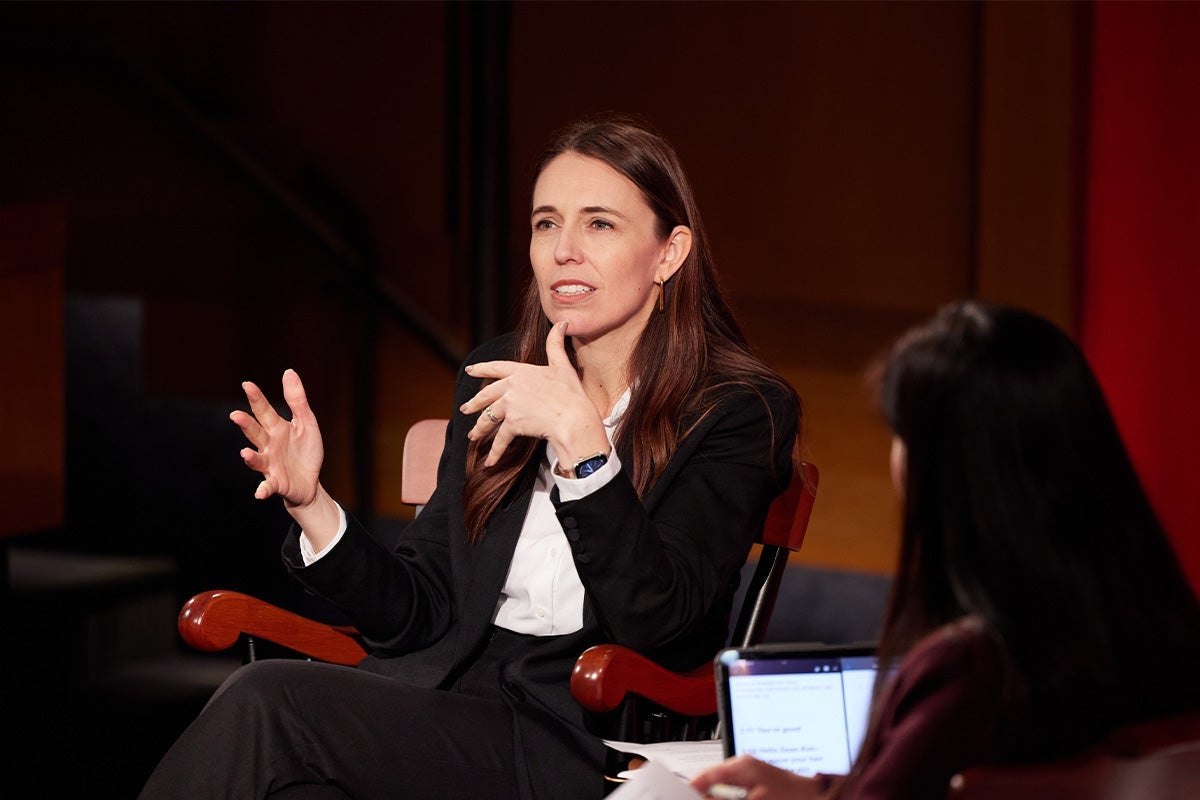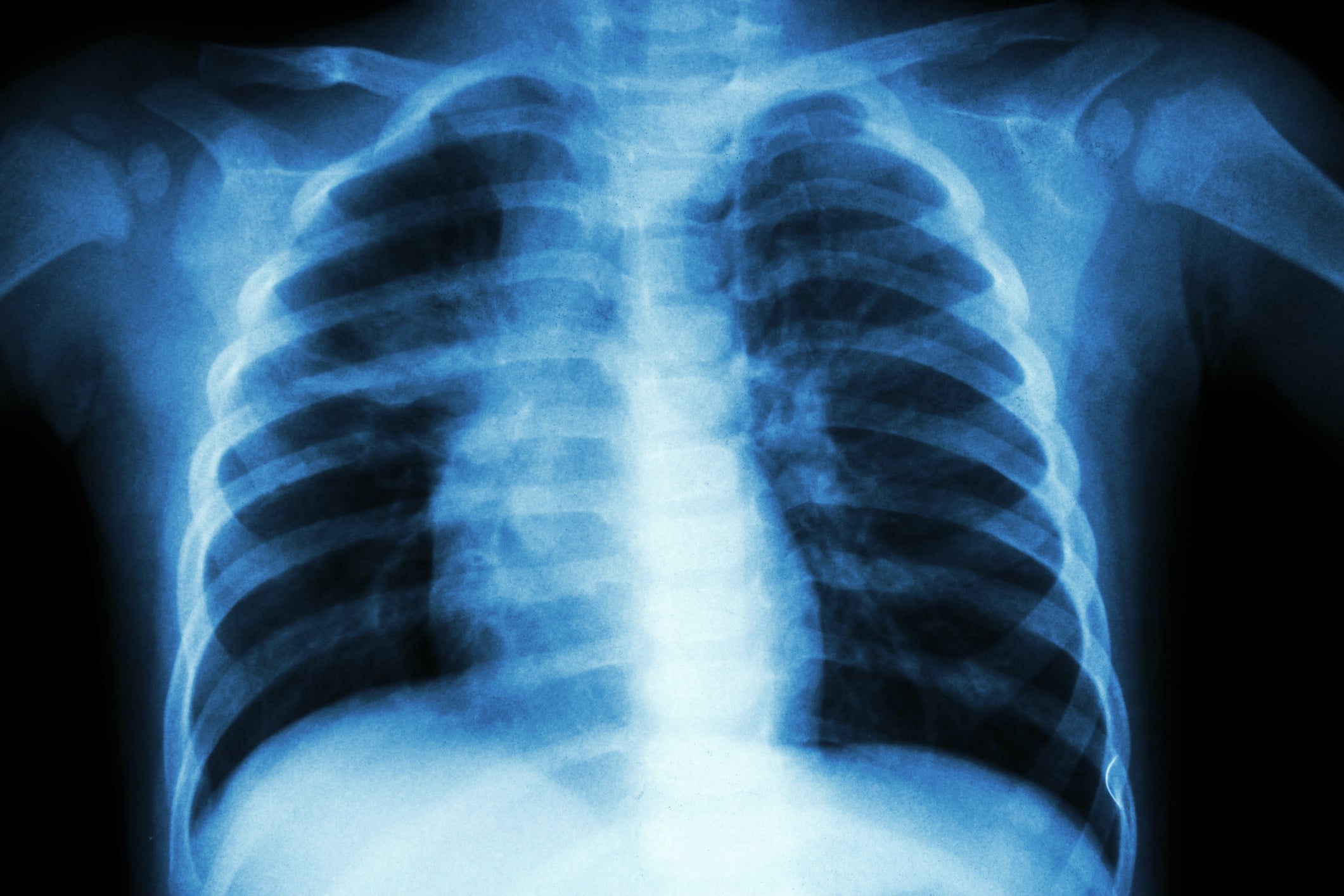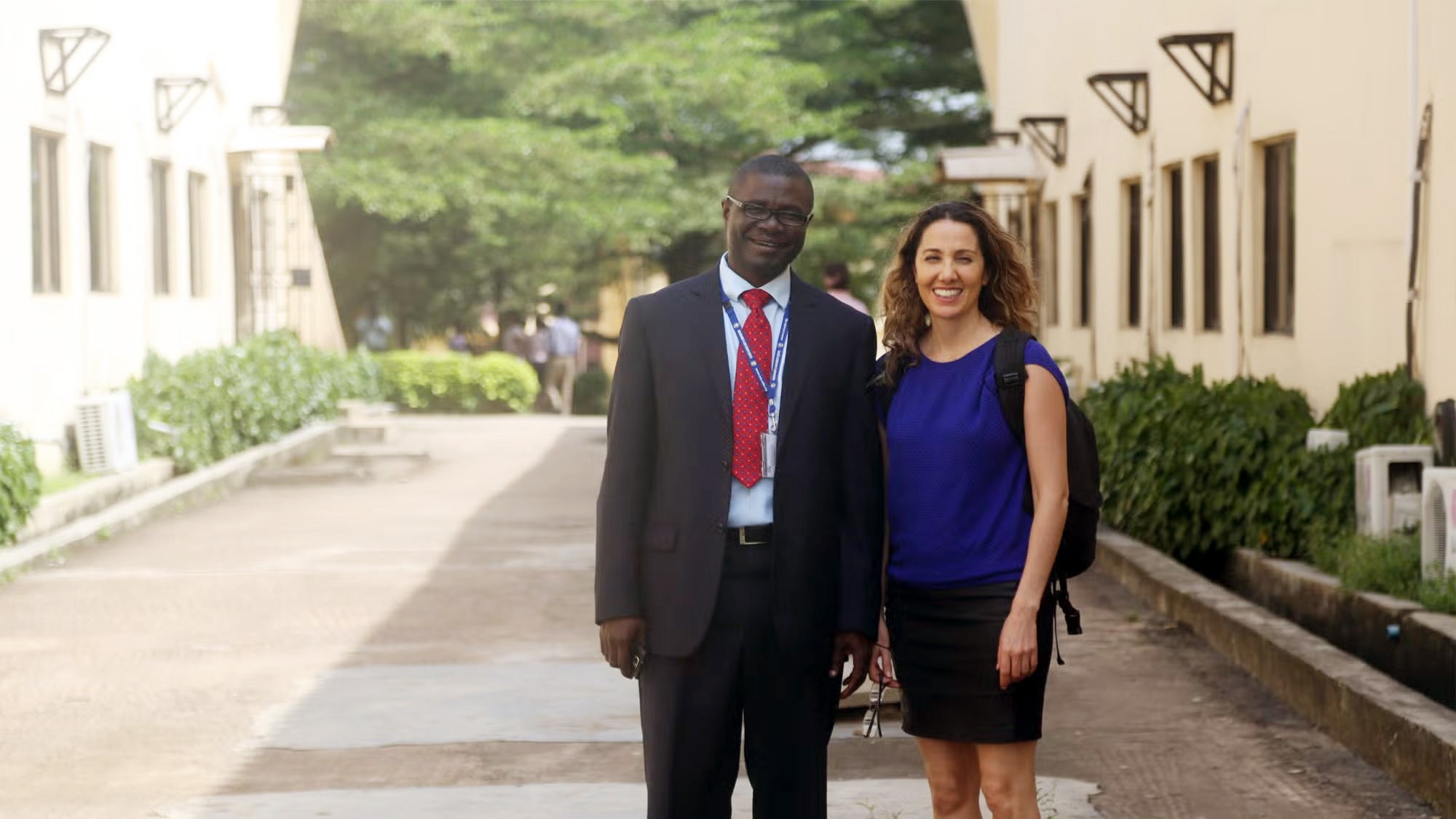How Jacinda Ardern tackled public health crises in New Zealand

November 21, 2023 – On March 15, 2019, a white supremacist gunman opened fire in two mosques in Christchurch, New Zealand, killing 51 people and injuring many others. The police learned within 24 hours that his weapons, including semi-automatic rifles, were obtained legally, and shared the information with Jacinda Ardern, then prime minister of New Zealand.
“I just remember that feeling—feeling like being punched,” Ardern said at a November 17 event at Harvard T.H. Chan School of Public Health. “The idea that someone was able to come in and legally obtain such weapons that were so obviously designed to cause a mass loss of life, to me was all the evidence that we needed to change our laws.”
Ardern, who served as New Zealand’s prime minister from October 2017 to January 2023, spoke with Interim Dean Jane Kim about her leadership during public health crises, including gun violence and the COVID-19 pandemic. She shared her approach to making policy decisions and emphasized the need for transparency during the decision-making process.
Decisive actions
In the wake of the Christchurch shootings, Ardern led a swift and strong response in reforming the country’s gun laws. Within a week, she announced a temporary ban on semi-automatic and assault rifles. About three weeks later, New Zealand’s Parliament passed legislation, nearly unanimously, making the ban permanent. As part of the gun reforms, the government bought back weapons from gun owners and destroyed them.
“That decisiveness for me was driven by the issue—what had happened to us,” she said.
Ardern also led efforts to tackle online extremism in social media, in response to the fact that the shooter livestreamed the attack on Facebook for 17 minutes before the video was taken down. Two months after the attack, she and French President Emmanuel Macron launched the Christchurch Call, a commitment by governments, tech companies, and civil society organizations to eliminate terrorist and violent extremist content online.
“Because New Zealand was so desperate to try and prevent anything like this ever happening again for us or anyone else, we wanted to look at the role of social media in what happened in New Zealand,” she said. “We had a role to play in trying to prevent social media being weaponized in the way that it was on March 15.”
Ardern is currently the Angelopoulos Global Public Leaders Fellow and a Hauser Leader at the Center for Public Leadership at Harvard Kennedy School, and a Knight Tech Governance Leadership Fellow at the Berkman Klein Center for Internet & Society at Harvard Law School. In her roles, one of her goals is to advance the work of the Christchurch Call, particularly in the area of artificial intelligence—a rapidly growing technology that also has the potential to be misused.
Transparency in leadership
Arden also spoke about leading New Zealand’s initial response to the COVID-19 pandemic in 2020, particularly during the first few weeks when public health officials were still figuring out the best courses of action. The situation required transparency in order to build trust and confidence with the public.
“It was so clear that we didn’t have all of the knowledge that we needed,” she said. “That was an opportunity to come out and say we don’t know everything. We’re humbling ourselves to the situation, but we are bringing in all of the data, all of the experts, all of the advice we need to make the best possible decisions—and we have a plan.
“I do believe it’s okay to say that you don’t have all the answers. It’s not okay to say that you don’t have a plan,” she emphasized.
As soon as Ardern learned that the numbers of COVID-19 deaths and cases far exceeded the country’s hospital capacity, she announced an alert system to communicate public health measures with the public. The system included four levels, from cautionary restrictions at level one to a full-scale lockdown at level four.
“People came with us because we walked them through every stage,” she said. “What I learned, I shared. And I think that made all the difference.”
– Jay Lau
Photo: Kent Dayton


